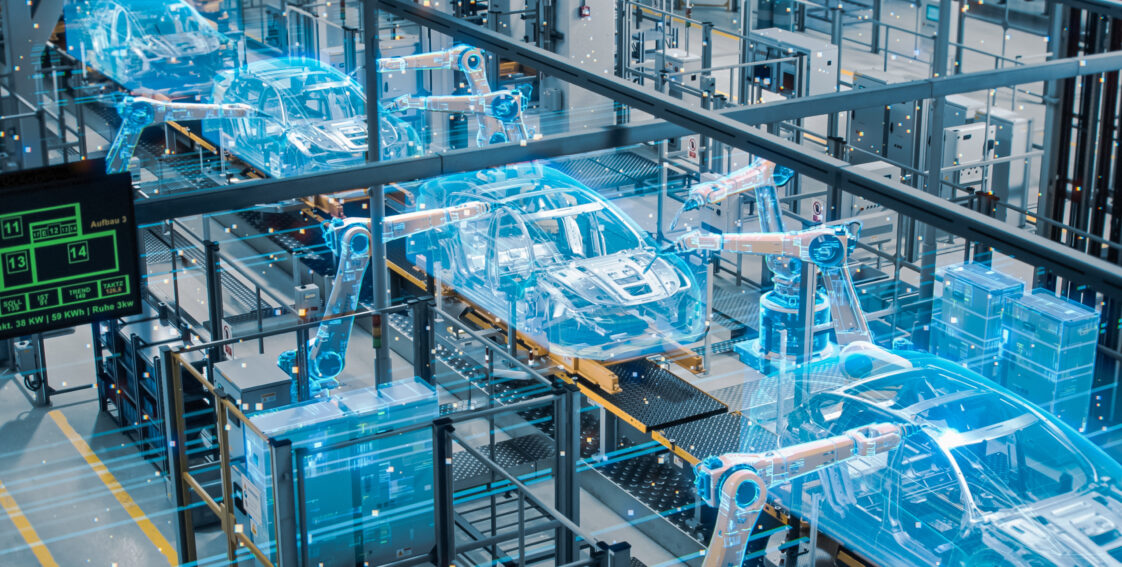
3D Scanning and Inspection Systems: New Applications for Robots in Manufacturing
The development of robotics and automation is revolutionizing the manufacturing industry as we know it, introducing new levels of efficiency, quality control, safety, and cost-effectiveness.
Automated 3D scanning and inspection systems represent the latest technology enabling manufacturers to enhance production methods using robotics and remain competitive in the global market.
According to SkyQuest Technology Consulting, the 3D scanning market is projected to grow exponentially over the next decade, reaching 13.6 billion by 2028. This rapid growth is primarily due to the versatility of 3D scanners, which can be used for a wide range of industrial applications.
Let’s dive in and examine the various ways robotic 3D scanning systems can streamline production processes, increase the efficiency of quality assurance, and save costs.
Reducing Costs During QA Processes
Robotic 3D scanning systems give manufacturers a more efficient approach to quality control and quality assurance inspections. Traditional measurement systems, such as coordinate measuring machines (CMMs), require a high level of skill from the operator to produce consistent results and often cannot keep up with rapid production speeds. Compared to CMMs, robotic systems with a 3D inspection system are more efficient and cost-effective due to their ease of use.
Manufacturers can save time and money in the long run by using robotic 3D scanners since they require little training, typically provide faster results than traditional inspection systems, and can accurately measure large objects and parts with complex geometries and surfaces.
Allows for 3D Inline Measurements

Inline measurement is the process of automatically measuring and analyzing products during manufacturing. It often involves using industrial robots equipped with scanners to measure, inspect, and verify the quality of products as they move through the production line. The goal is to detect defects or errors early in the production process, which prevents non-conforming products, helps reduce waste, and improves product quality.
The primary advantage of using industrial robots for inline measurements is that it helps reduce operation costs while increasing inspection rates. By automating the measurement process, manufacturers can eliminate the need for manual inspection, which can be time-consuming and costly. As a result, manufacturers can increase production efficiency and reduce the likelihood of errors that could result in expensive product recalls or rework. This benefit can be significant in aerospace or medical device manufacturing, where product quality and safety are critical.
In-Process Inspections & Defect Management
Industrial robots equipped with 3D scanning technology also help manufacturers avoid production delays by inspecting and aiding in manufacturing processes. For example, industrial robots can use 3D scanning technology to measure a component, identify errors with that component, and then resolve those errors through grinding, polishing, sanding, assembly, or other processes. This is beneficial because manufacturers no longer need to throw defective parts away or send them back for reworking—the industrial robot is both a manufacturing and inspection system.
When industrial robots are used this way, it can significantly reduce lead time and prevent further manufacturing delays, ensuring high-quality, defect-free products.
Learn More About the Benefits of Automated 3D Scanning
As industrial automation becomes more prevalent in manufacturing, automated 3D scanning and inspection systems play a more significant role in ensuring the accuracy and quality of manufactured parts. By leveraging today’s advanced 3D laser scanning systems, manufacturers can streamline their processes, reduce costs, and produce higher-quality products with greater precision.MAS is at the forefront of this revolution, offering a broad range of robotic 3D scanning and inspection systems to meet the needs of aerospace/defense, automotive, pharmaceutical/medical, and general manufacturing industries. If you’re interested in learning more about the benefits of automated 3D scanning, contact our team today to book a discovery meeting.
